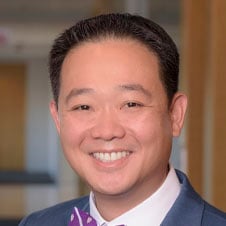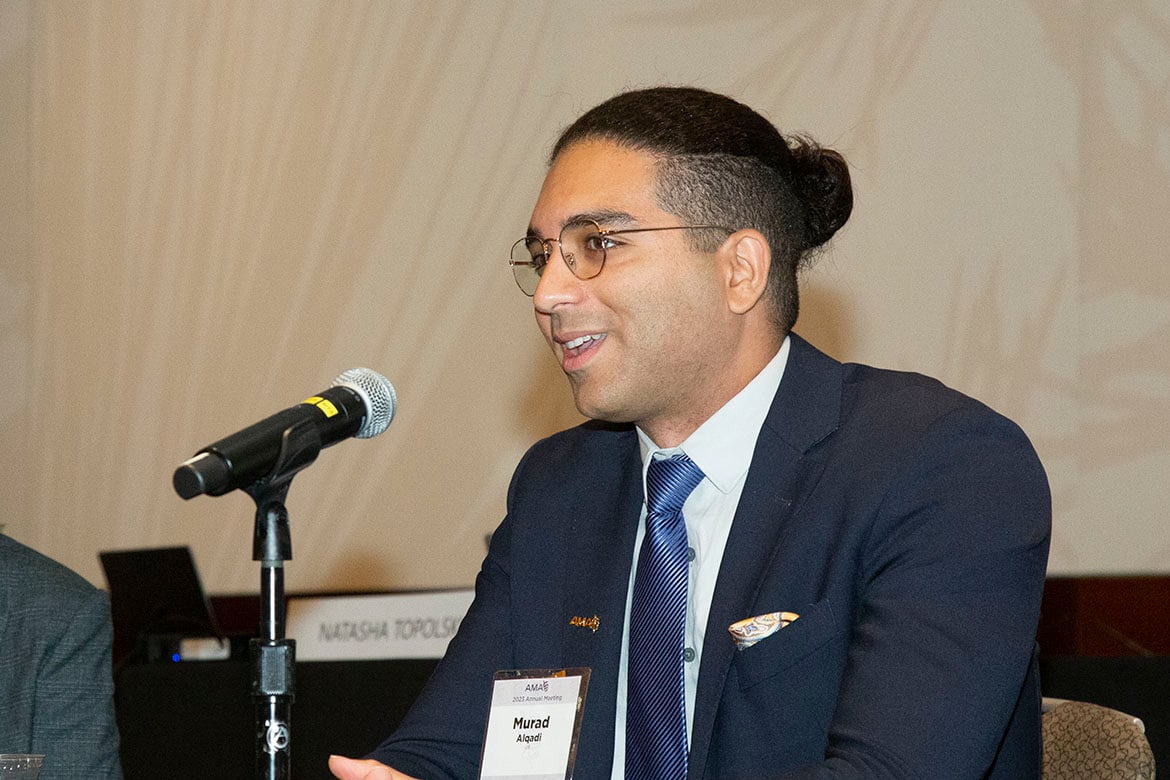Improving the health of the nation takes on many forms. For physicians, the most common is, of course, direct patient interactions in a clinical setting.
Leaving the four walls of the care setting, however, is an option that may appeal to numerous physicians and future doctors. An education session at the 2023 AMA Annual Meeting offered insight on the nonclinical impact physicians can make. Here’s a look at some of the session’s key takeaways.
You can have macro-level impact
As associate vice president for physician strategy and medical affairs at Humana, Alexander Ding, MD, MS, MBA, leads a team focused on:
- Physician engagement, empowerment, advocacy and wellness.
- Advancement of value-based care.
- Executing on enterprise-level clinical culture.
His interest in making a broader scale impact was sparked when he was delegate and active member of the AMA Medical Student Section (AMA-MSS) decades ago.
“It was really about: How can I scale my ability to make an impact in health care?” said Dr. Ding, who is also a practicing radiologist and member of the AMA Board of Trustees. “Still with the patient as the North Star, but through various different ways that go beyond the clinic or OR. You can make an amazing impact on a one-on-one level. But I think no matter how fast you work at it, there’s a cap to how many patients you can see and impact with regard to their health.
“I started looking at other opportunities,” Dr. Ding noted during the session, hosted by the AMA-MSS. “Policy is a great means to achieve that. Another is leveraging technology or working through business to understand how you make a broader impact on the overall health care system through points that are not necessarily taught in day-to-day medical school, but certainly something where a lot of your passion you have as a med student and the knowledge and expertise you have of the health care system you can leverage in other ways to have impact on patient’s lives.”
Lack of structure can be a challenge
Medical students and resident physicians have a proscribed path. During his residency training, Murad Alqadi, MD, got off the path to work on Curie, a startup he co-founded to advance health equity. Changing courses was initially daunting, he said.
“The analogy I like to give is that when you are in the medical training pipeline, you are on train tracks,” Dr. Murad said. “If you work hard and power your steam engine, you are going to make it through. It’s very easy to have blinders on and just look forward. When you are suddenly not on those train tracks anymore, you may realize that you are either riding a bike, or a tricycle or a car. Suddenly you can go in any direction, and there’s paralysis in that.
“There’s a moment where you have to look within yourself and say: ‘Where do I go from here? What is my cornerstone? What have I stood for most of my life.’ When you make decisions based on your cornerstones, your passions that have been with you for a very long time, at that point you realize where you can contribute.”
Passions will drive your path
Also a former AMA-MSS member, Michael Suk, MD, JD, MPH, MBA, serves as chief physician officer of Geisinger System Services, as well as professor and chair of the Geisinger Musculoskeletal Institute. Geisinger is a member of AMA Health System Program, which provides enterprise solutions to equip leadership, physicians and care teams with resources to help drive the future of medicine.
Dr. Suk touted two keys to success in the nonclinical career realm: passion and adaptive expertise.
“One of the more common questions I get is: How do you find these other pathways?” said Dr. Suk, a practicing orthopaedic surgeon.
“The bottom line is: If you have an interest, you are going to have opportunities all over the place. The AMA and MSS can help to train your thinking to say, ‘I see a problem, I’m going to craft a solution, and work with you to execute it.’
“If you are able to do those three things, you will go an immense way,” Dr. Suk said. “Most people only get to that first question—I see a problem. As you hone those abilities to go forward, I think that the nontraditional things you see other people not doing will be easy to adapt to and address.”






